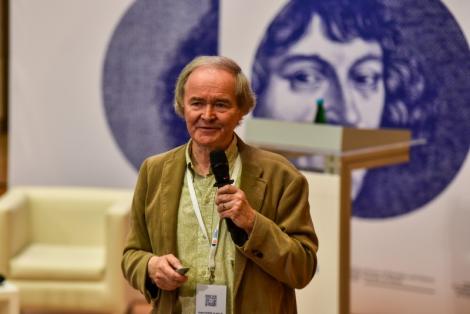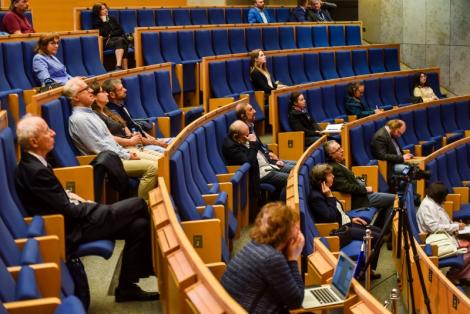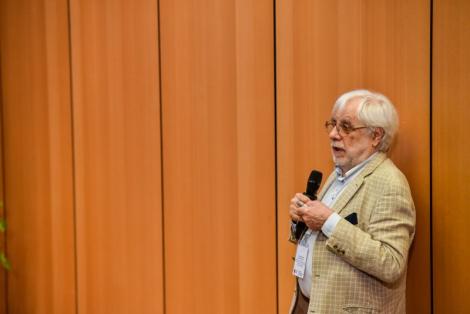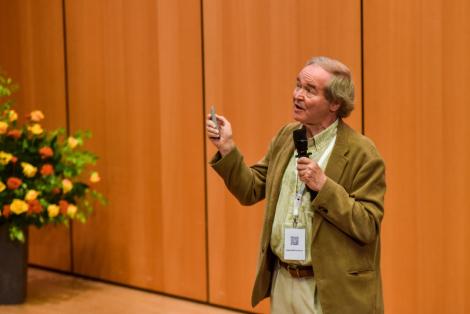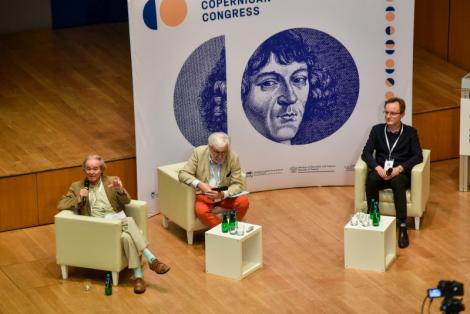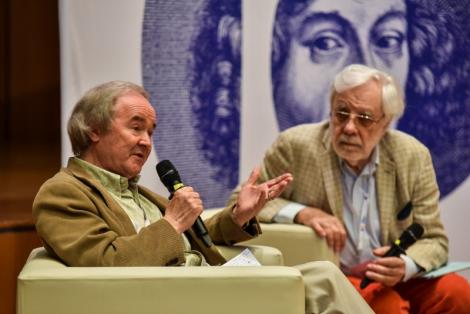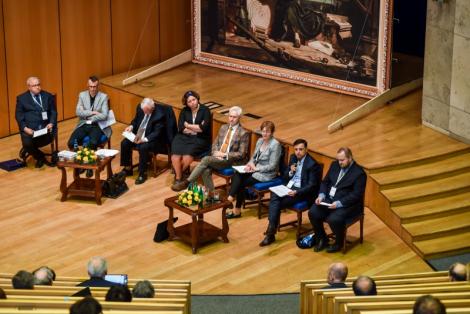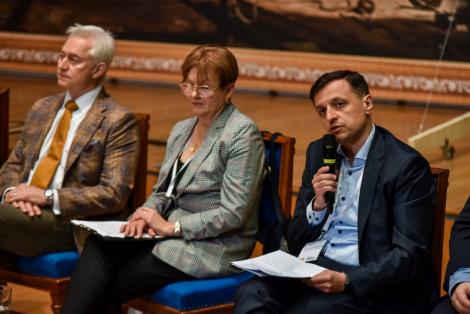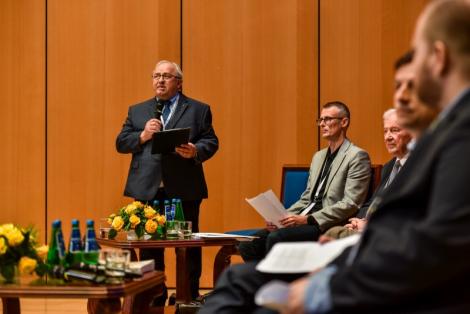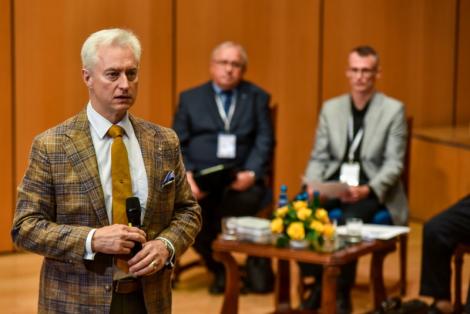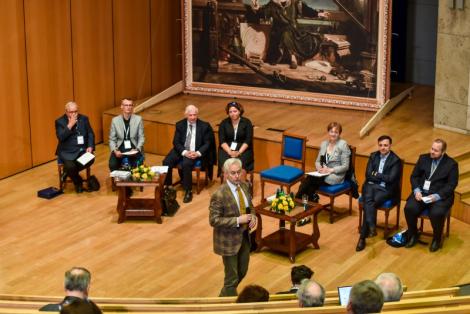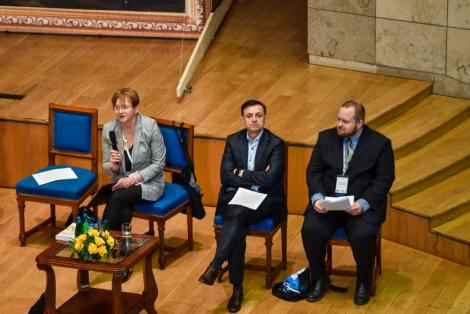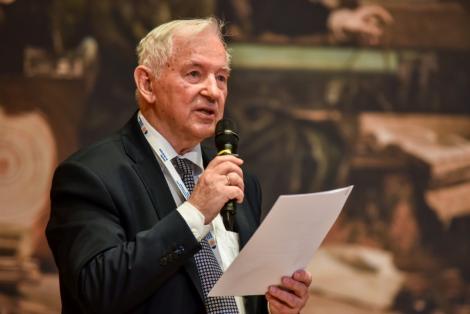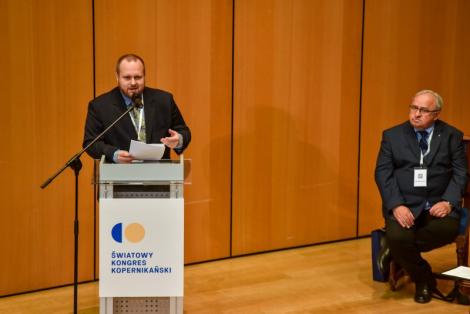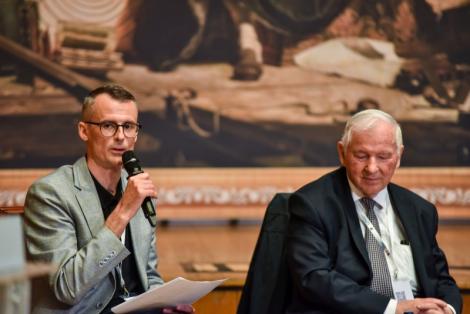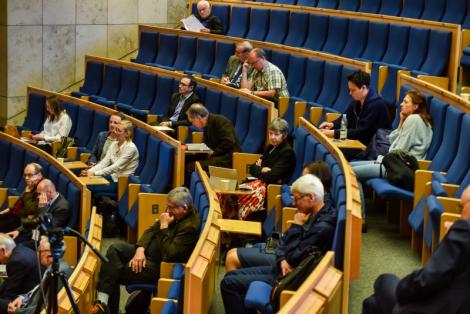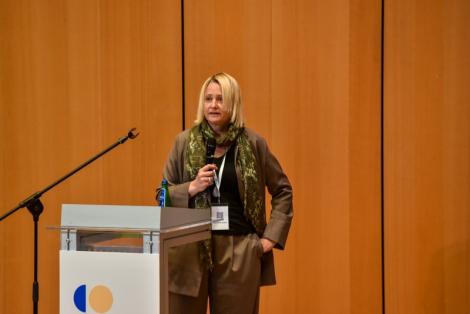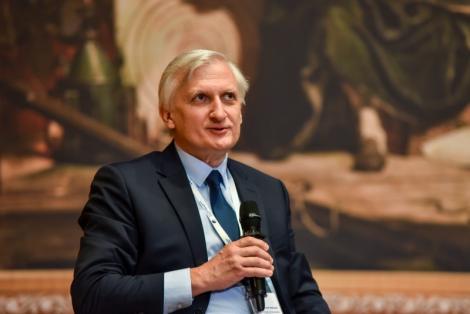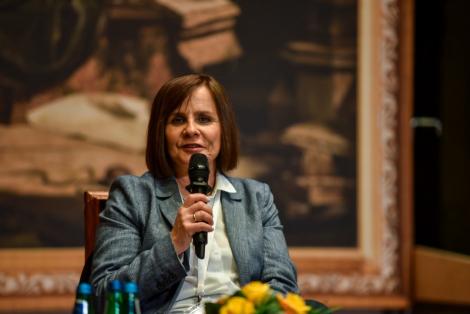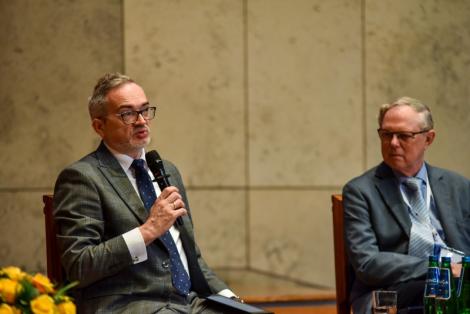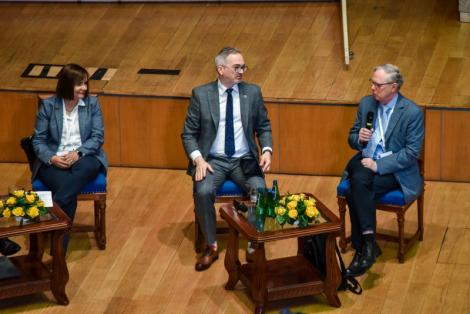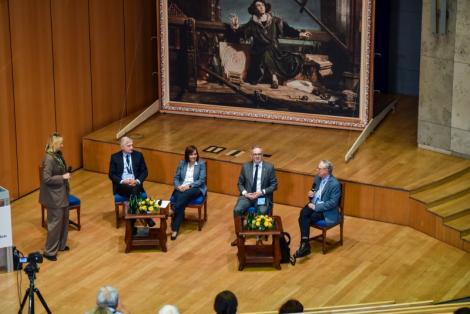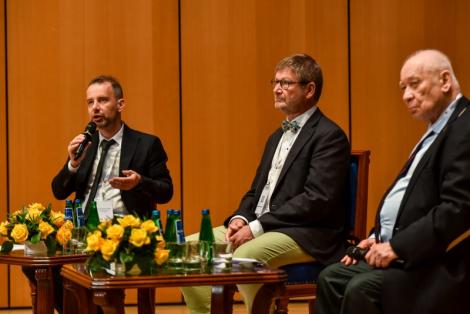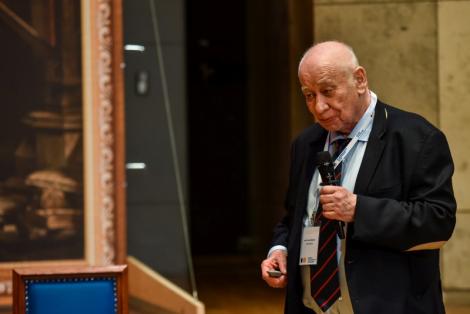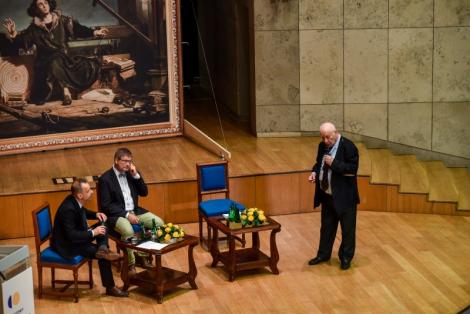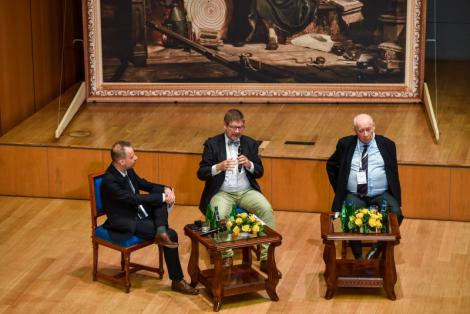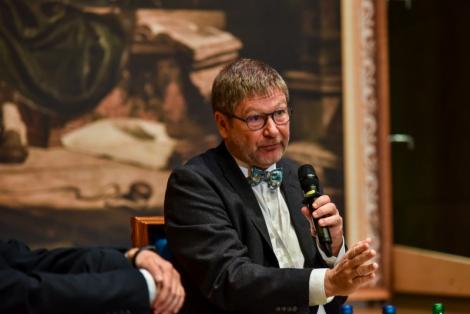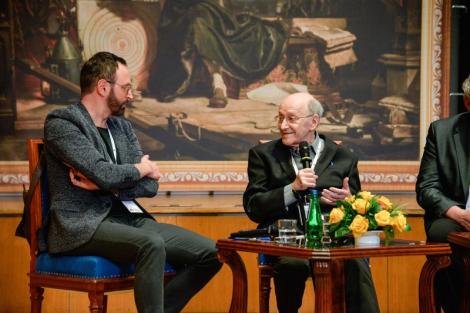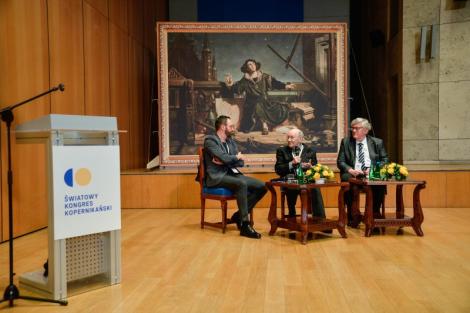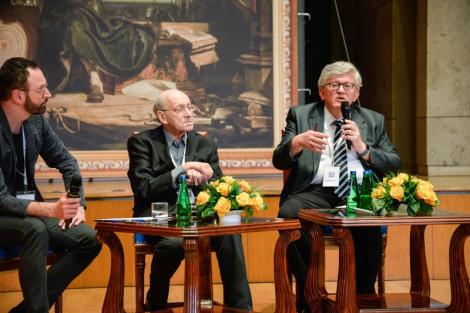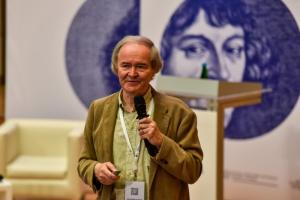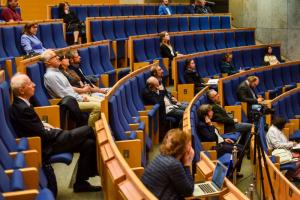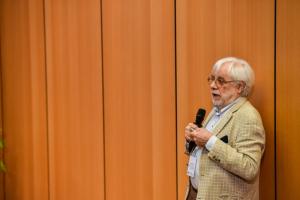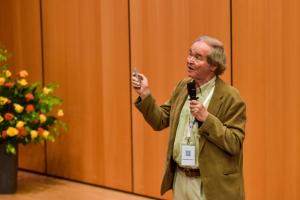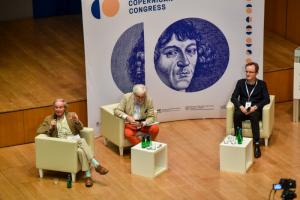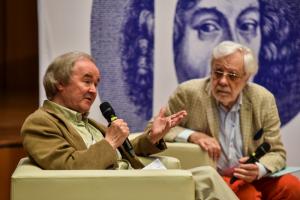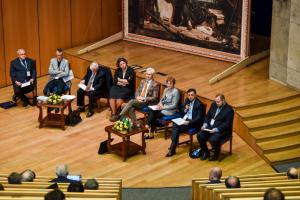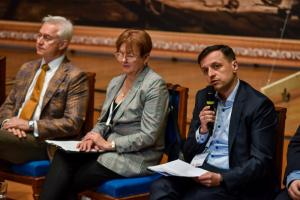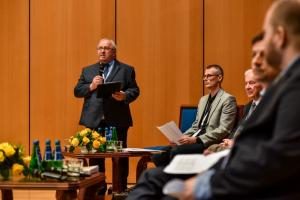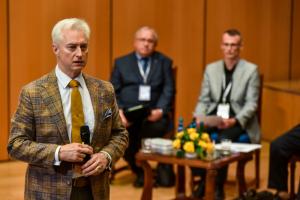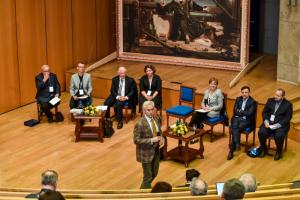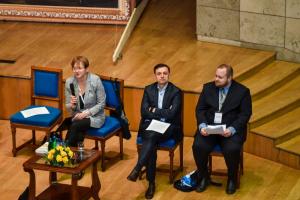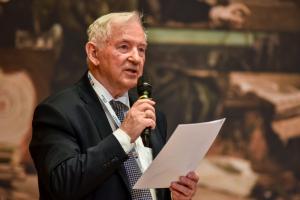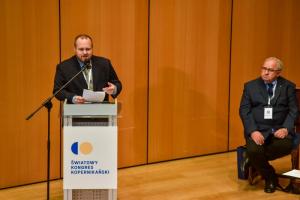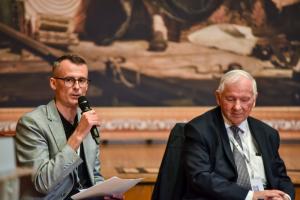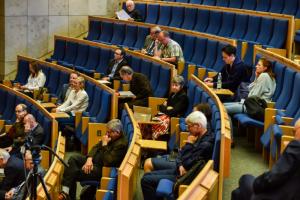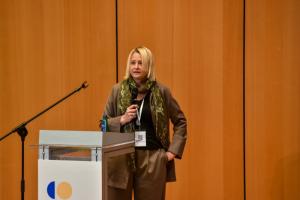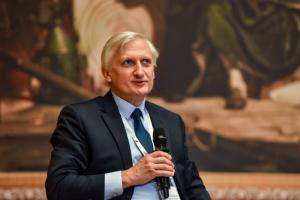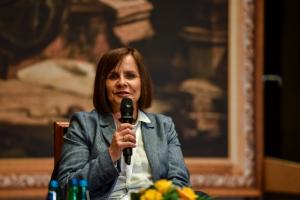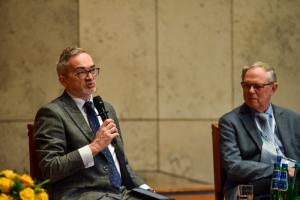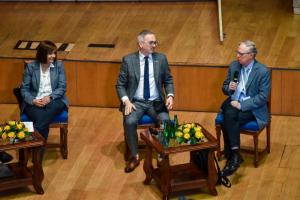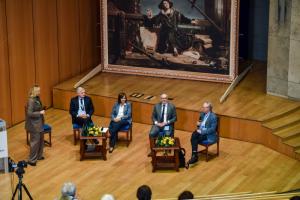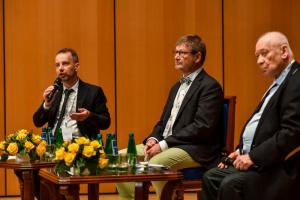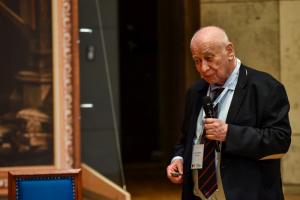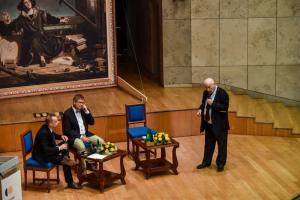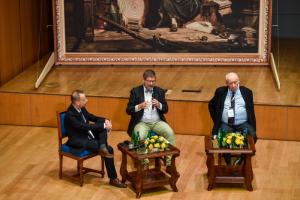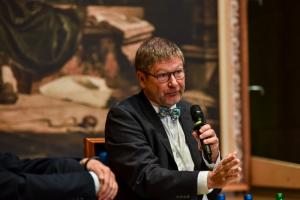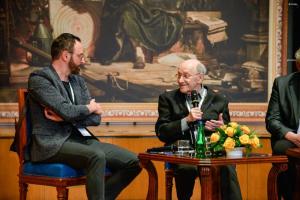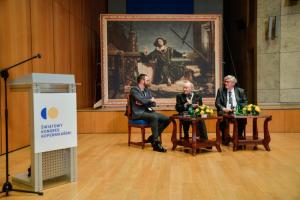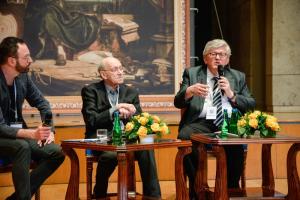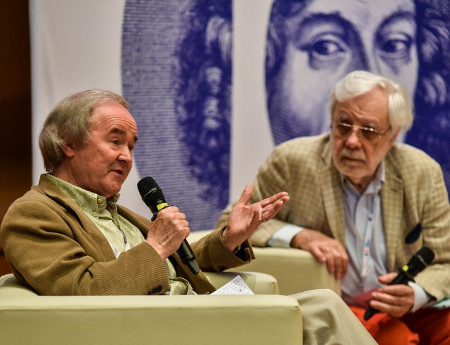
The programme of the last day of the Kraków part of the World Copernican Congress organised to celebrate the 550th anniversary of the birth of the great astronomer was yet again filled with debates of Polish and foreign experts in the areas of philosophy and economics.
The philosophical section opened with a discussion between Bernard Carr and Jean-Pierre Lasota-Hirszowicz, who spoke on the subject of the still controversial topic of the anthropic principle. The audience was able to get acquainted with concepts that are a matter of an ongoing debate amongst physicists trying to answer questions such as ‘Is the Universe attuned to life?’ and ‘When did time begin and why does it move forward?’.
As stressed by Bernard Carr, the anthropic principle, which was first formulated by Brandon Carter during the 500th anniversary of the birth of Nicolaus Copernicus celebrated in Kraków in 1973, in fact has nothing to do with humanity, but rather with how the Universe works. It is neither an anthropocentric approach (with a central role of humanity) nor a mechanistic way of seeing the Universe as proposed by Newton (in which the presence of humanity does not affect it in any way). There are two versions of the anthropic principle: weak, in which an observer can exist only in a sufficiently old Universe with certain properties (such as an abundance of carbon), and strong, in which the laws of physics, physical constants and initial conditions need to be exactly as required in order for an observer to exist.
Jean-Pierre Lasota-Hirszowicz offered a more sceptical view on the anthropic principle, emphasising that it can only be valid if there are multiple Universes and that it is derived from our own ignorance, as we do not know why certain properties of the Universe are as they are. He proposed a different approach, one based on uncertainty: until we know what Universe and life itself is, we should not speak about their mutual attunement, as it is a reductionist attitude.
The motif of anthropic principle was also present during the afternoon discussion The Human Universe, attended by Michał Heller and Claude Diebolt. Michał Heller proposed a new concept which he called the structural anthropic principle. Its aim is to answer the question of how the structure of the Universe needs to be like in order for biological evolution to take place. In his opinion, every living system needs to be a dynamic one. In the shape given by modern physics, it must conform to the following rules: it needs to have a certain set of states (consistencies) in which the system can exist, there needs to be time for the system to evolve, and the systems need to have a dynamic relationship with one another. The Kraków scientists believes that the evolution of the Universe is a necessary requirement for biological evolution.
The economic part of the event featured a panel entitled Digital revolution and its consequences for finance and real economy, presided over by Katarzyna Śledziewska. The experts attending the panel talked about changes that artificial intelligence, digitalisation and technological advances brings not only to economic issues, but also everyday life. They discussed the need for providing society with an education that would allow people to freely take advantage of latest technological achievements and navigate in a transformed world.
Another panel, Macroeconomic prediction. Theory and practice, moderated by Krzysztof Malaga, was devoted to the issues of latest trends in macroeconomic prediction, the main sources of errors in that area and how it changes in response to crises. Some key points raised during the discussions were: precision and verifiability of predictions in the face of unpredictable phenomena, a question of whether models should be used to predict or to understand reality, and the impact of AI on the development of predictive techniques.


